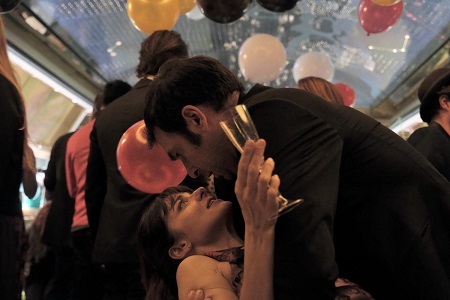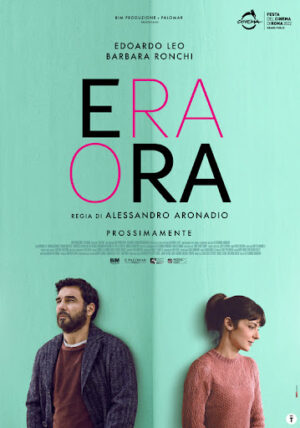TORONTO – In a world where computer speed and power generally doubles every one to two years, and where human DNA sequencing is growing exponentially, questions surrounding time and purpose become more pronounced.
Netflix’s “Era Ora”, directed and co-written by Alessandro Aronadio, examines the eternal human struggle to enjoy the present in an increasingly fast-paced world. The story, adapted from an Australian film titled “Long Short Story”, thrusts Dante its main character into a bizarre reality that he can hardly absorb, a consequence of his sudden ability to continuously time travel a year into the future.
The film poses some interesting questions about Mankind’s relationship with time and how it shapes our perception of life’s experiences. While commenting on the film in an interview, Aronadio remarked that despite the fantastical plot, audiences will identify with the “Perception that each of us has. That is, that time is flying by and slipping through out finger tips”.
The film stars Edoardo Leo who plays Dante, a workaholic who struggles with his personal life and commitments. The story’s unexpected and whimsical turn occurs the day after his 40th birthday when he wakes up a year into the future. The time lapse repeats itself throughout the story as Dante continues to skip whole years of his life. He lives through mere hours of each journey, only long enough for him to discover what he’s missed. This disorienting experience is cleverly transmitted onto the viewer, through a perfectly balanced pace and tone of a film that neatly blends its comedy with tragedy. The regret of lost time and ill decisions follow Dante throughout his many epiphanies. Worse however is the realization that he’s existed without having lived the experience.
Though an un-realistic plot, viewers might identify with Dante’s feelings of detachment or disassociation as he learns that he has a child he doesn’t truly know, or of a job promotion he didn’t expect, or of a new love interest he’s never considered.
Some films entertain while others intrigue, but sometimes the two experiences converge. “Era Ora” is an interesting attempt to do just that. Dante’s persistent charm and humour in the face of total collapse reminds us that perhaps we aren’t completely helpless against the pitfalls of life.
Director Alessandro Aronadio adds when speaking about the story that, “yesterday’s tragedies become today’s comedies and today’s tragedies become tomorrow’s comedies”. In other words, time is neither an ally nor an enemy, but simply a stage. Or as actress Barbara Ronchi, who plays Dante’s wife Alice, puts it: “when we’re in love and time stands still, it’s an ally, but when you only have a day to spend with your lover, it’s a bit of both”.
Massimo Volpe is a filmmaker and freelance writer from Toronto: he writes reviews of Italian films/content on Netflix







